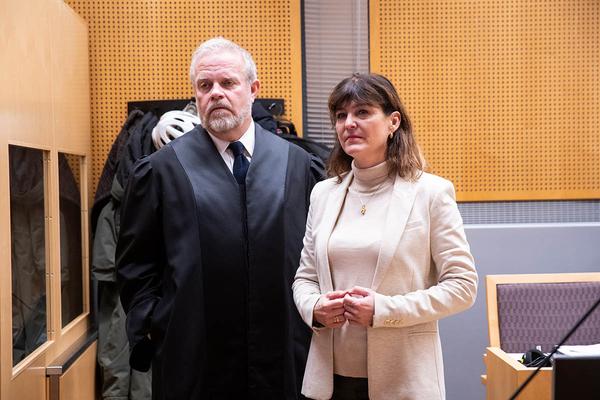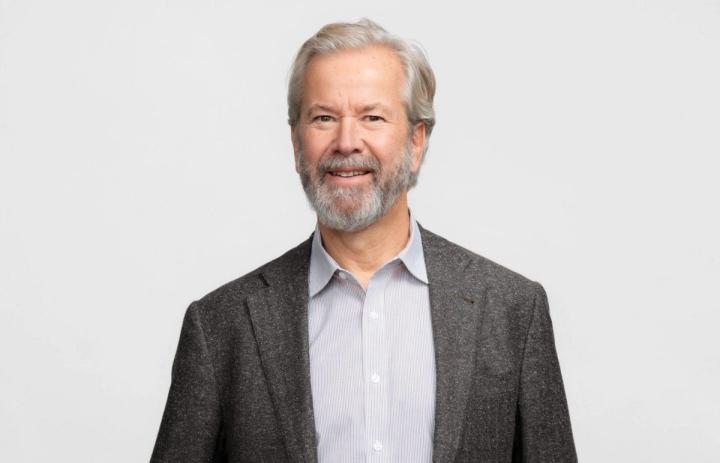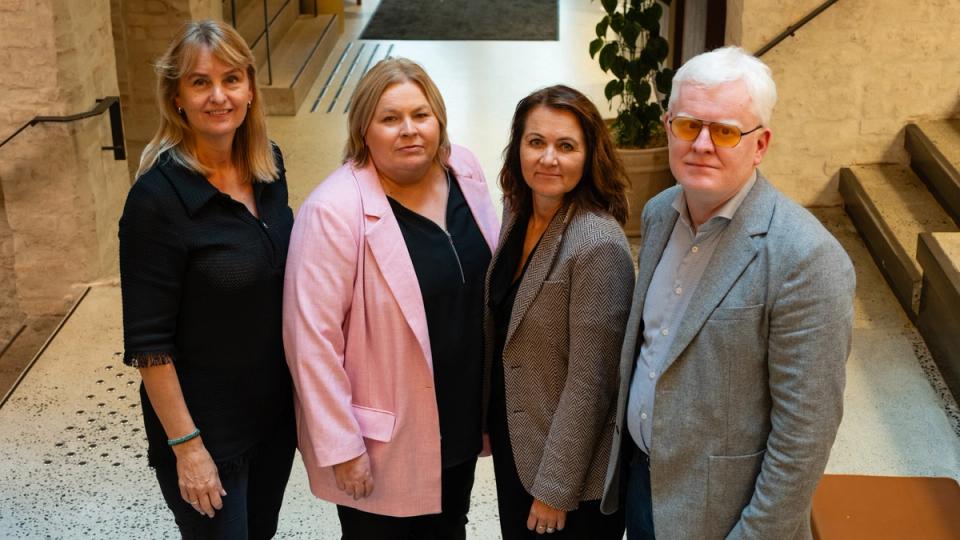18. mai 2017
The Free Press Paradox

To many, traditional journalism and “new media” should be held to different standards. But do we really understand how that […]
To many, traditional journalism and “new media” should be held to different standards. But do we really understand how that will play out?
Editorial desks have long been the epicentre of the digital transformation. But now the rules of the game have changed, the cards have been re-dealt, and the fundamental values of publishing itself are getting thrown into the pot.
We live in a time that could be considered “the golden age of reporting.” Reporting is fast, it’s free, and everyone can do it. It takes only a few minutes to establish your own virtual media entity and start publishing. But how do we preserve the public’s faith in — possibly even the very existence of — reliable, accountable reporting? How do we remind them that accountable reporting is not a thing of the past, but as crucial as ever: Who do you trust? Who will make sure they get the facts straight? Who will ensure that sources are real and reliable in this free and fast publishing era? Yes, everyone can publish anything — and that makes it even more necessary to keep alive and kicking those who don’t, those who maintain higher ethical standards and bring them to bear.
In our current topsy-turvy media landscape, there are still a few old foundational journalistic pillars from the pre-digital era, the centuries preceding the emergence of social media. These pillars may help guide us through the uncertain future of editorial desks, or they could be reduced to mere annoying speed bumps by those with less understanding of history. Because if the media forsakes its ethical mission to publish something more essential than what the everyman “citizen journalist” can, then these pillars are all doomed to fall.
From my perspective, as someone whose fundamental mission is to protect free, independent and ethical journalism, there is clearly a future for professional journalists — those who want to change the world for the better through their reporting — and for those who understand that there is something special about being a media leader.
In 2015, the Norwegian Press Complaints Commission received 17 percent more complaints against traditional Norwegian media than the year before, and we are seeing a similar trend in other Nordic countries. This complaint system is simple, free and open, but it takes a fair amount of effort to file a complaint against an editorial desk. You need to correctly word the complaint, preferably cite one or more paragraphs from the ethical code, and respond to editorial comments. In short, a complaint implies that you expected better of an editorial desk.
But the world that surrounds this carefully crafted and curated journalism — a world of comments from anyone who can start a blog, website or profile in social media — has unfortunately become a world filled with published hate. Unlike the journalism it comments on, this type of publication is problematic, as it follows no ethical code.
Although the internet’s penchant for hateful speech shows no sign of abating (and police currently do little about punishable speech, though our Prime Minister is trying to launch a national campaign for fewer insults), to those of us who have to deal with a structured complaint system on a daily basis, it’s obvious that traditional editorial desks are behaving responsibly. They follow and comply with a mandatory ethical system.
In an age of online hate, the professional integrity of an ethical code is an alien concept. Yes, everyone can publish — but for readers it is not quite irrelevant yet who publishes. The unrestrained internet has not extinguished the belief that people should be able to complain and have mistakes rectified in traditional media; on the contrary, in fact.
Editorial desks make ethical judgements every single day. All Norwegian media organizations — the Norwegian Union of Journalists, the Association of Norwegian Editors, the Norwegian Media Businesses Association — adhere to ethical principles. This distinguishes them from what “everyone else” publishes online, and demands thinking about the value of structured and binding ethical cooperation. It is also a paradox.
The Legal Paradox
With free access to publishing tools, much of the information which journalists used to have de facto control over has, fortunately, become public property. But the legal system is a challenge to this public access.
Take courtrooms: Courtrooms must be open to ensure the monitoring of public prosecuting authority and judicial power. When members of the press sit in the public gallery, they do so to create an public understanding of court judgements and rulings, but also to prevent miscarriages of justice.
In the Norwegian Press Association, we work to ensure that everyone has access to the work of the courts, but we also know that occasionally that isn’t possible, due to sensitive information or potential exposure of vulnerable or innocent people. In those cases, we argue for special access for editorial desks so they can do their job — knowing that the material will be subject to a responsible editorial assessment prior to publication, in accordance with the code of press ethics.
But what if the material in question is surveillance video of an ambulance driver using a non-regulatory chokehold on a mentally ill man that results in his death? Should editorial desks be given special access, as they are different from “anyone who can publish”? What if adherence to a press code of ethics is no longer sacrosanct? If the courts decide that they have no choice but to deny access, for fear that sensitive information might fall into the wrong hands, the biggest losers will be a less-informed general public and, by extension, our democracy.
The open flow of information that is so essential to the survival of a democratic society is often taken for granted — but it is fundamentally dependent on the ethical practice of professional journalism.
In the case of the surveillance tape, a decision to deny access had to be appealed all the way to the Norwegian Supreme Court. This important case was settled on the principle of the role of the press as society’s watchdog. But will the press continue to play such a role in the future, ensuring public access to vital information? Or will this role change if a more open concept of “citizen journalism” is not based on an ethical code?
The Columbia University School of Journalism declared another 2105 decision by Norway’s Supreme Court the world’s most important ruling. This case involved the Norwegian Police Security Service (PST), in an era of terror fears and heightened surveillance, seizing unpublished footage of radicalized youth from documentary filmmaker Ulrik Imtiaz Rolfsen. The Supreme Court ultimately (and unanimously) rejected the government’s seizure of the material on the grounds that protection of sources is at the heart of the role of the press in society, as played by Rolfsen’s journalistic project.
But will rulings like these stand out in the future? Who will take on the social mission of the press if we renounce our fundamental principles?
What if we no longer work freely and independently of direct commercial interests? This point was recently brought up by President Obama during his last White House Correspondents’ Dinner.
The ultimate paradox would be if no one could fulfill this social mission, if information were ultimately hidden from the public, because everyone can publish and no one can be relied upon more than others.
The Editorial Paradox
The entire framework on which responsible journalism is built is upheld by the editor-in-chief. It is she or he who acts as the editorial leader, the public face, who is held accountable when journalists make mistakes.
It is also the editor-in-chief who enables a law that guarantees freedom of the press (known in Norway as the Freedom of the Media Act). The law granting this democratically vital freedom is based on the assumption that the editor-in-chief leads an editorial enterprise, that it is the editor-in-chief who makes the decisions. Something as seemingly innocent as the owner of a media company demanding to see an article, video or podcast prior to publication constitutes a violation of the law and undermines the statutory freedom which editorial desks must have in order to do their job.
But who will be these principled editors in the future? How many will “keep in mind the ideal purpose of the media” as stated in the first paragraph in the Guidelines of the Association of Norwegian Editors? What does it mean to be a free medium? How can we ensure that there are editors fighting to uphold the idea that “A free, independent press is among the most important institutions in a democratic society”? A free press must not only be independent of the State; it also cannot act in the interests of others — like commercial interests — and still claim to be free, and therefore credible.
It is the media companies’ relentless hunt for new revenue and financing models that risk undermining the essential role of the independent editor, putting at serious risk the editors’ freedom to perform their journalistic duty. And handing over editorial responsibility to faceless social platforms like Facebook only serves to tear at the legal and ethical fabric of journalistic practice, meant to ensure access to information and fulfilment of a social mission.
But it is not only the editor’s role that has become obscure; the understanding of what a news medium actually is has also become fuzzy. In a time when everyone can publish freely and when advertisements and editorial content look exactly the same, we find ourselves in a situation where we no longer know how to define a news medium. What is journalism in this new world of free publishing? And what do we need to do to preserve this fragile framework of professional journalism, of ethical duties, of legal entrenchment, of responsibility to society?
This is a true tipping point for anyone who relies on the credibility of journalism — which is therefore anyone who values the continuing existence of democracy. As always, it is a case of those who stand for nothing will fall for anything.
As always, it is a case of those who stand for nothing will fall for anything.



